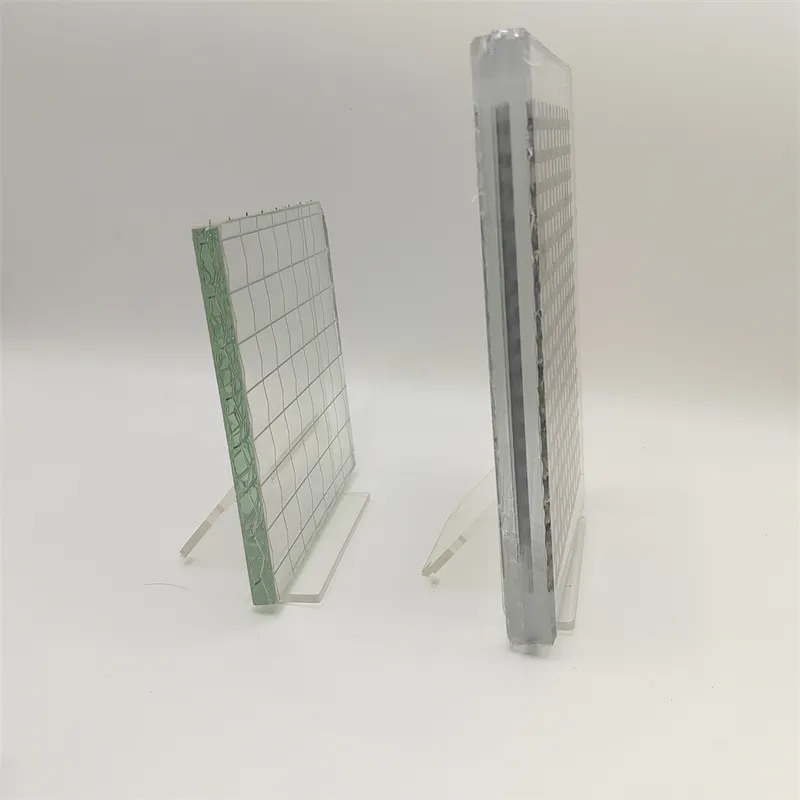Nov . 20, 2024 13:47 Back to list
4mm float glass
Understanding 4mm Float Glass Properties, Applications, and Benefits
Float glass, a key material in the construction and manufacturing industries, is widely recognized for its clarity and uniform thickness. Among the various thicknesses available, 4mm float glass is particularly popular due to its balance between strength, weight, and transparency. In this article, we will explore what 4mm float glass is, its properties, applications, and the benefits it offers.
What is Float Glass?
Float glass is produced through a process that involves floating molten glass on top of molten tin. This process creates a smooth, flat surface that's free from distortions and bubbles. The resulting product is clear, allowing for high levels of light transmission. Float glass can be manufactured in various thicknesses, ranging from 2mm to 19mm and beyond, with 4mm being one of the most commonly used thicknesses.
Properties of 4mm Float Glass
The 4mm thickness provides a good balance between weight and durability. It is relatively lightweight, making it easier to handle and transport compared to thicker glass. Yet it still offers sufficient strength for various applications. The optical clarity of 4mm float glass is another significant advantage; it boasts high levels of transparency and is generally free of imperfections, making it ideal for applications where visibility is paramount.
Additionally, 4mm float glass can be treated or coated for enhanced properties. For instance, it can be tempered to increase its strength and thermal resistance, or laminated for safety purposes, which helps hold the glass together in the event of breakage.
Applications of 4mm Float Glass
Due to its favorable properties, 4mm float glass is used in a wide variety of applications
4mm float glass

1. Windows and Doors Its clarity and light transmission make it an excellent choice for residential and commercial windows. It allows natural light to enter while providing a clear view.
2. Mirrors The smooth surface of 4mm float glass is perfect for creating high-quality mirrors, commonly used in bathrooms, dressing rooms, and salons.
3. Furniture Many modern furniture pieces incorporate glass, with 4mm being a preferred thickness for tabletops and shelves, striking a balance between aesthetics and practicality.
4. Display Cases Museums, stores, and galleries often use 4mm float glass for display cases, allowing for maximum visibility of items while providing adequate protection.
5. Partitions and Shower Enclosures The transparency and lightweight nature of 4mm float glass also make it suitable for office partitions and shower enclosures, creating stylish and functional spaces.
Benefits of 4mm Float Glass
Choosing 4mm float glass comes with several advantages. Its lightweight nature makes it easier to install and reduces structural load requirements. Moreover, the high clarity and aesthetic appeal enhance the beauty of any space, making it a favored choice among architects and designers. Additionally, the option to enhance its properties through treatment or lamination increases its versatility, accommodating various needs from safety to energy efficiency.
In conclusion, 4mm float glass stands out as a valuable material with diverse applications in modern design and construction. Its combination of clarity, strength, and adaptability makes it an essential choice for a variety of projects, ensuring both functionality and aesthetic appeal. Whether you are renovating your home or designing a commercial space, 4mm float glass is undoubtedly worth considering.
-
Safety and Style with Premium Laminated Glass Solutions
NewsJun.24,2025
-
Reinvents Security with Premium Wired Glass
NewsJun.24,2025
-
Premium Float Glass Line for Modern Architecture
NewsJun.24,2025
-
Low Emissivity Glass for Energy-Efficient Architecture
NewsJun.24,2025
-
High-Performance Insulated Glass Solutions for Modern Architecture
NewsJun.24,2025
-
Elevates Interior Style with Premium Silver Mirror
NewsJun.24,2025
Related PRODUCTS














